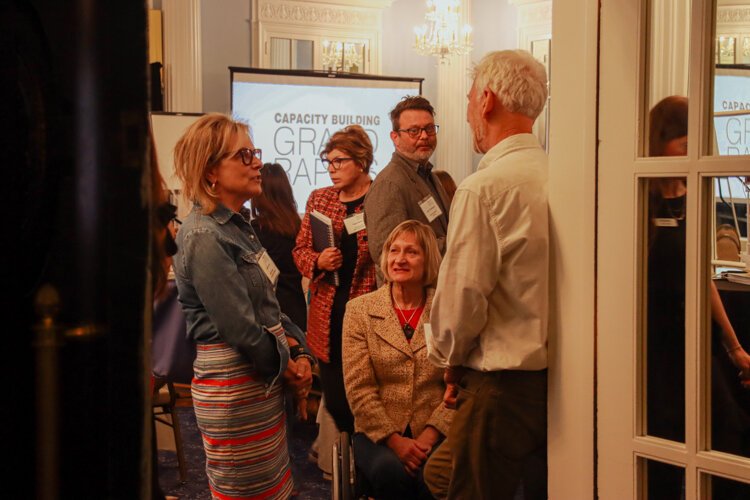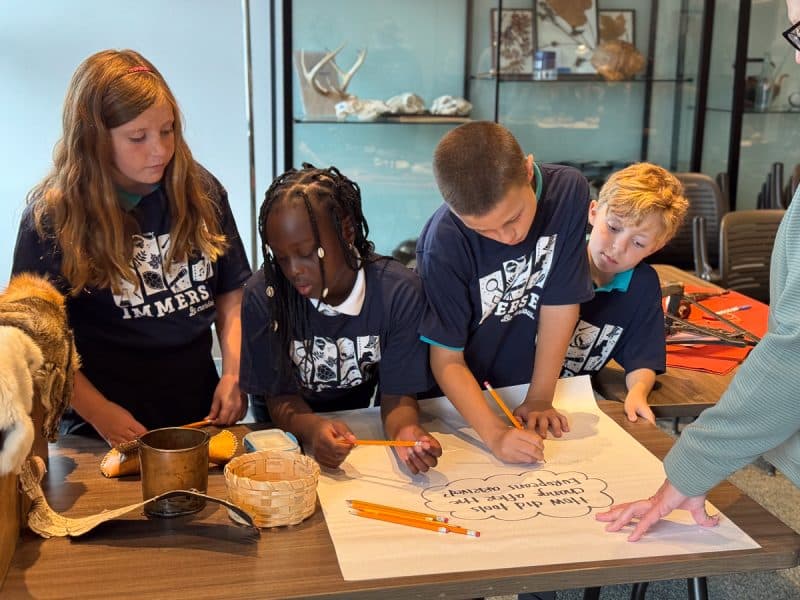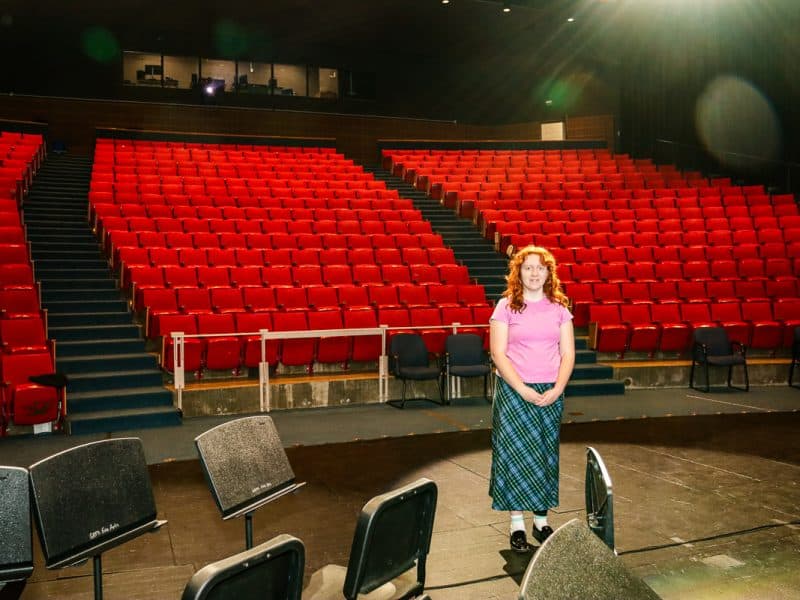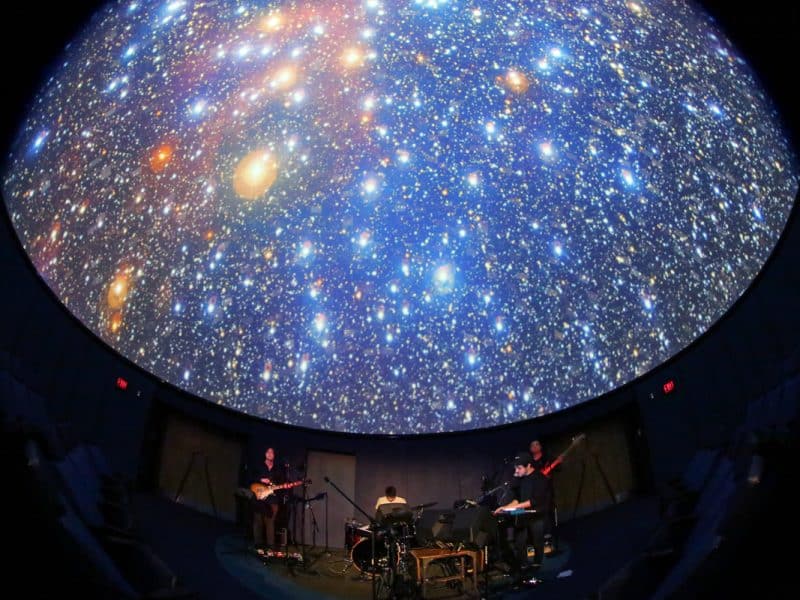Strengthening arts organizations: The DeVos Institute’s capacity-building initiative in GR
Five months into a two-year effort, the Capacity Building: Grand Rapids program is helping 14 local arts groups strengthen strategy, sustainability, and global impact.
Five months into its transformative two-year journey, the DeVos Institute for Arts and Nonprofit Management’s Capacity Building: Grand Rapids program is driving change in the local arts and nonprofit sectors.
With the enthusiastic support of Dick and Betsy DeVos, this program is assisting 14 Grand Rapids arts organizations in enhancing their strategic planning, strengthening sustainability, and developing impactful, enduring community programs.
A vision for Grand Rapids’ cultural future
“We’ve always cared deeply about Grand Rapids. This is our hometown, and having a vibrant arts community here is essential for a thriving city,” says Dick DeVos.
In partnership with the DeVos Institute, this initiative showcases their dedication to advancing our local arts culture. The DeVos family’s longstanding involvement with the Institute acknowledges its worldwide influence in arts management and aims to leverage that expertise in West Michigan.
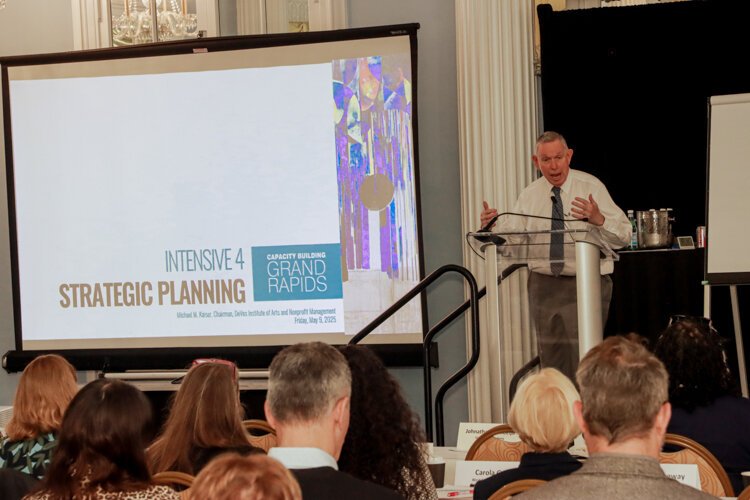
Michael M. Kaiser, Chairman of the DeVos Institute of Arts and Nonprofit Management, welcomes Capacity Building: Grand Rapids arts leadership.
“This program isn’t just about helping individual organizations,” says Betsy DeVos, echoing her husband’s sentiment, “It’s about creating a ripple effect in Grand Rapids—a cultural renaissance that comes from within the community itself.”
The program collaborates with both established arts organizations and emerging nonprofits to create stronger, more resilient institutions capable of overcoming financial and operational challenges. According to her, this is an essential mindset shift in the evolving philanthropic landscape.
Strategic transformation through collaboration
The program’s design is inspired by the Cycle, a unique method developed by the DeVos Institute, focusing on sustainability and adaptability.
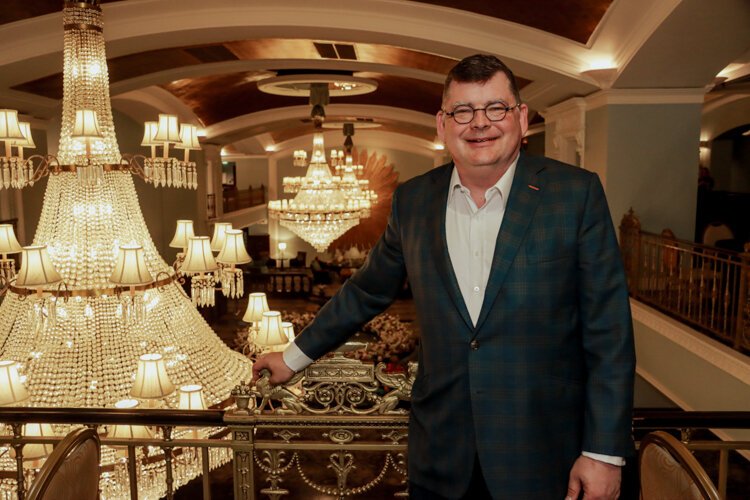
“It’s about equipping arts organizations with the tools to thrive independently,” says Michael M. Kaiser, Chairman of the DeVos Institute of Arts Management at the University of Maryland. “We teach them to grow their support base, think strategically, and ensure their programming is compelling enough to sustain long-term success.”
Keith Elder, President and CEO of the Grand Rapids Symphony, sees this as a turning point for his organization.
“As we move forward with our strategic planning, we’re shifting from merely chasing funding to creating truly exciting products—programming that resonates deeply with the community,” says Elder. “The Institute’s approach reinforces that revenue follows from strong programming.”
For Elder, focusing on making the arts more dynamic has also led to increased collaboration among local organizations.
“The ability to connect with other arts groups has been invaluable. We’re learning from each other, pooling resources, and ultimately strengthening the entire arts ecology here,” he says.
Expanding Grand Rapids’ reach
While the emphasis is on local efforts, the program’s global impact is significant. The DeVos Institute has partnered with organizations in more than 80 countries, and its reach keeps expanding.
“Grand Rapids is now a part of a much larger network,” Kaiser explains. “By fostering peer-to-peer learning within the cohort, we’ve created a model that can be adapted worldwide. And while it’s just the start for Grand Rapids, the potential is already immense.”
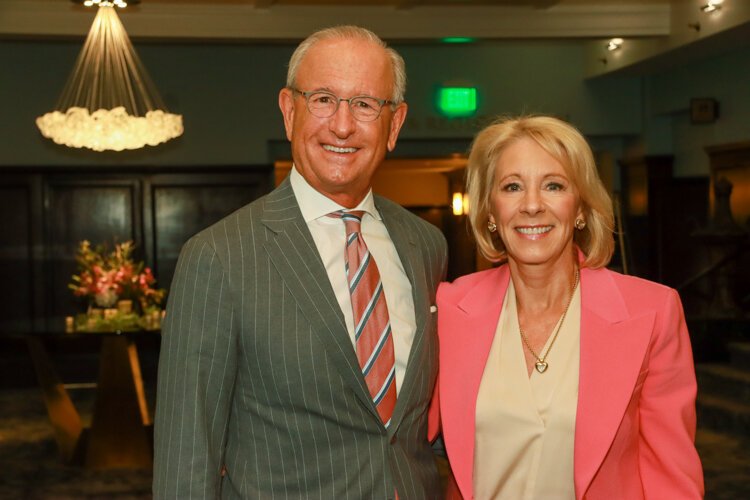
Dick and Betsy DeVos hope that their program will help organizations be resilient, not just survive.
The program extends its impact beyond just board members and staff, fostering a more profound connection with the community. As organizations enhance their strategic plans, they also discover ways to engage more meaningfully with their audiences.
“One of the most impactful things about what the Cycle via the Institute can deliver and enlighten the participating organizations is how to grow that appeal and expand support well beyond the ones who’ve always been there”, says Betsy DeVos, “We’re always going to be there, but one has to keep growing as an organization to have long-term sustainability.”
Addressing the growing funding challenge
This initiative’s timing is both crucial and opportune. With possible cuts to federal funding for the arts, the issue of sustainability in this sector is increasingly pressing.
Recent proposals to abolish the National Endowment for the Arts (NEA) have prompted many arts organizations to question how they will adapt to these changes.
“Public funding for the arts has been in decline globally,” Dick DeVos says, “It’s simply a reality we have to face. But what are we going to do about it?”
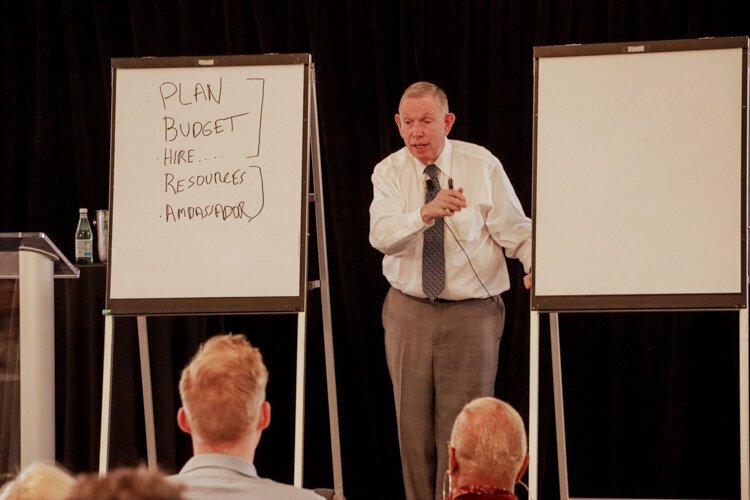
Michael M. Kaiser, Chairman of the DeVos Institute of Arts and Nonprofit Management, welcomes Capacity Building: Grand Rapids arts leadership.
Betsy DeVos emphasizes the significance of self-sufficiency.
“Arts organizations must focus on creating value that people are willing to support, not just rely on public funding,” says Betsy DeVos. “The focus of this program is to help organizations be resilient, not just survive. I think they will do well to focus on the areas they can control, impact, and influence, and those things are really within their power to change.”
Michael Kaiser agrees, emphasizing that relying solely on federal funding is very short-sighted.
“We encourage organizations to think of public funding as just one piece of the puzzle,” says Kaiser. “There are countless other ways to build and sustain revenue streams. And Grand Rapids has an impressive network of funders already.”
A Roadmap for the future
As this group of arts organizations begins the next phase of the Cycle, each organization involved will be matched with a mentor to create a detailed strategic plan.
“By the end of this process, these organizations won’t just have learned strategies—they’ll have a tailored roadmap for their future,” says Kaiser.
The goal is clear: to equip these organizations with the confidence and knowledge to lead not only in Grand Rapids but also as models for communities around the world.
For Dick and Betsy DeVos, this initiative signifies a legacy beyond mere financial investment.
“We believe in the power of arts and culture to transform a community,” Dick DeVos says. “And through this program, we hope to see Grand Rapids’ arts scene become a beacon for other cities.”
A lasting legacy
As “Capacity Building: Grand Rapids” enters its second phase, the community begins to see this collaborative effort’s tangible benefits.
With a strong foundation laid for the future, the program is setting the stage for an exciting, sustainable arts ecosystem in West Michigan—one that is poised to serve as a model of success for cities far beyond its borders.
“The arts are a critical part of any community, and Grand Rapids is well on its way to ensuring that the arts here will continue to flourish for generations to come,” says Kaiser.
Photos by Tommy Allen

